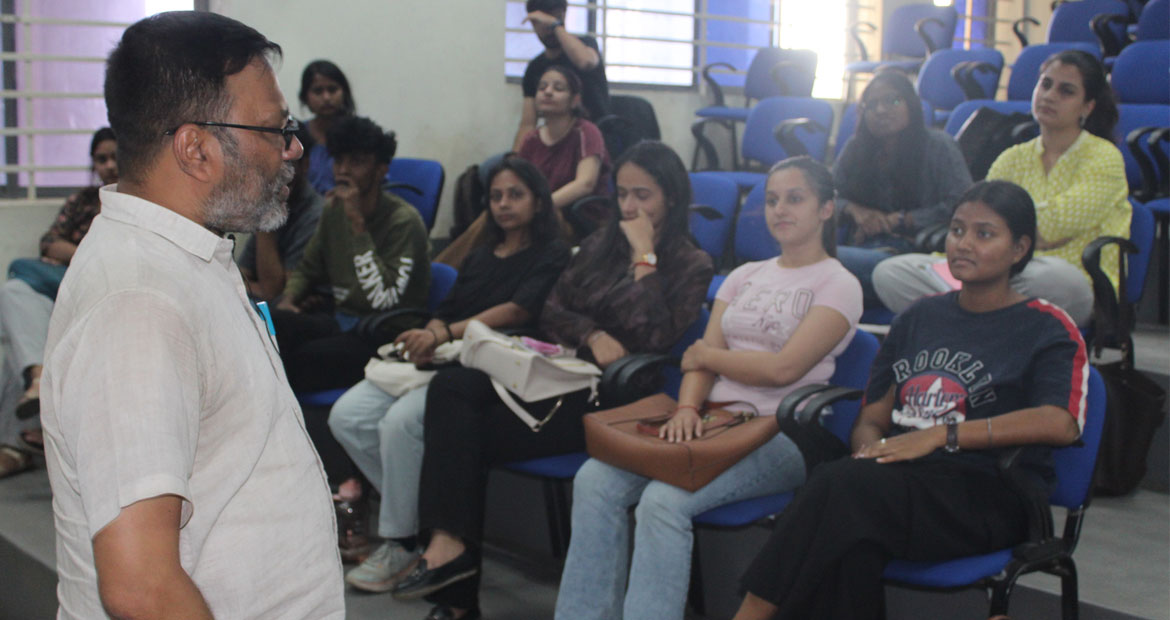
Once a journalist, always a journalist: Shubhranshu Choudhary
Journalism, just like politics, is meant for the public good, said Shubhranshu Choudhary, journalist and co-founder of CGNet Swara, the world’s first Community Radio on mobile phones. He was delivering a guest lecture to the students of the 2023-24 batch at the Indian Institute of Journalism and New Media (IIJNM) on March 4, 2024.
“Democracy is currently the best form of governance we have,” he said. India was the first underdeveloped nation with a majority of illiterate citizens to experiment with political democracy, he said. “One of the wisest decisions made by our forefathers after gaining independence was to not go back to aristocracy,” he said. However, for a country to be truly democratic, its society and economy must also be democratic, he added.
During his lecture, he discussed with the students the need for democratic media and the possibility of achieving it. “Journalism, all over the world, is still very aristocratic,” he said. The concept of a ruler has been replaced by the owner of a media house, with the viewers or readers having no absolute power over them or the content they produce, he explained. The field of journalism continues to be top-down and non-inclusive, he added.
He shared with the students how his schooling in a tribal school among tribal students in Chhattisgarh and his encounters with conflicts during his time at the BBC shaped him to do the kind of work he does now – experimenting with democratic journalism. “News is something which affects the most people,” he said. However, the problem with the current media ownership pattern and practices is that not enough space is given to stories from rural India, he said. “That is why there is a need for journalists to redefine their roles and rethink how they approach journalism,” he added.
He said that while social media might be considered more democratic than the current mainstream media, it is neither social nor a form of media in the Indian context. “Approximately half of India’s population lacks internet access, and unlike journalism, the content posted on these platforms is not verified to determine its authenticity,” he said.
This is where the need for democratic media arises, he said. “Democratic media will allow the concerned citizens to report. It will enable even the illiterate to tell their own stories,” he said. With the advancement in technology, the internet, and artificial intelligence, democratic journalism has become more possible now than ever. These tools will allow the media to produce representative, inclusive, and data-backed content, he said.
“Respectful journalism is alarmingly falling and the current generation will have to face it,” he said. This generation can make the choice of creating a parallel democratic media like our forefathers who created the political democracy we have today. “A representative, inclusive, and democratic media will pave the way for solving conflicts,” he added.
By Steffy Paul
